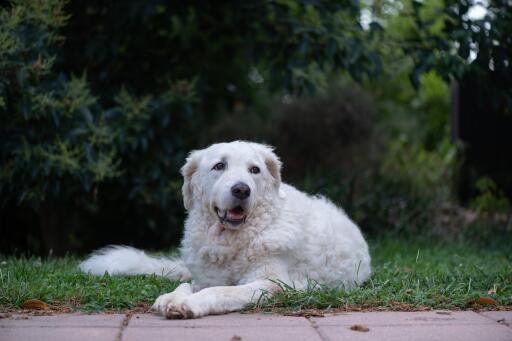
It is important to make the right choice when choosing a dog. There are many kinds of dogs. The choice of the right dog will depend on many things. Breeds vary in size, personality, and grooming needs. Be sure to consult a licensed veterinarian before making a final decision. These are some breeds you should consider if your first dog owner is not yet licensed.
Golden Retrievers
It is important that you are patient with your Golden Retriever as they learn. They are protective of their family and have a strong instinct to protect their owners. They are gentle with children. But, they should not be left unattended for prolonged periods.
An adult or senior golden retriever is a great choice for your first dog. These dogs will still need to be walked daily, even though they are no longer as puppy-like. These dogs are also less active than their younger counterparts. If you're looking for a dog that isn't a lot of work to take care of, a senior golden is a good choice.
Even though Goldens don’t require any training, they are quick to learn basic obedience training. When properly trained, Goldens can learn to identify and put away their toys. Although they are usually able to be emotionally mature in a few years, it can take them some time. These dogs might just want to have fun, despite being intelligent.
Cavaliers
Due to their gentle, affectionate nature, Cavaliers are a great choice for first-time owners. They are easy to train, require minimal exercise and are socially adept. They are also very sweet and require very little grooming. Find out why Cavaliers are the best dog for your first time owner.

Cavaliers may be known as lap dogs. However, as they age, they may develop heart problems. They are social and easy going, and they can be good friends with children. These dogs are great for families with young children. They are also among the most affordable breeds making them perfect for first-time buyers.
Cavaliers are adorable, intelligent, and very energetic. Cavaliers can grow to quite large sizes but shed less than other breeds. If you are new to pet ownership, the Cavalier Kings Charles Spaniel is a good option. This breed is perfect for small apartments as it can live up to 18 pounds.
Bichon Frise
Bichon frises are energetic, small dogs. They are great with children and get along well with other pets. They are easy and quick to train. They do not require a lot of exercise or a strict grooming regime. Bichons have curly, short coats, so they will need occasional brushing.

Bichon frises have been deemed hypoallergenic. Their high level of shed skin means you need to attend frequent grooming appointments, and be in constant contact with your groomer. The shed hair should be removed daily, or it can get caught in the undercoat and cause painful mats.
Bichon puppies are affectionate and friendly, so it's a good idea to prepare your home properly. Before bringing your pet home, make sure you spay or neuter them.
FAQ
Which breed is easier to train, cats or dogs?
Both. It all depends on how you train them.
Children learn faster when you reward them for their good behavior. You can ignore them if they don’t listen. They’ll eventually start to ignore your commands.
There's no right or incorrect answer. You have to decide what the best way is to teach your cat/dog.
Should I get a puppy or a kitten?
It all depends on who you really are. Some people prefer kittens to puppies.
In general, however, puppies are more active and playful. Kittens usually sleep a lot and are very gentle.
Both breeds of animal require constant attention from their owners. They will grow up quickly and need a lot of care.
They will also require regular medical checkups. Also, they will require regular medical checkups so you'll have to spend time taking them to see the vet.
There are three things you should consider before buying a cat.
These questions should be asked before you purchase a cat.
-
Are there any health concerns for the cat?
-
Is it possible for the cat to eat all my food.
-
Do I want a cat to love cats or just a pet?
What is pet coverage?
Pet insurance provides financial protection for your pet's health and safety in the event that they become injured or sick. It also covers routine care such as vaccinations or spaying/neutering.
It also pays for emergency care if your pet is injured or has an accident.
There are two types to pet insurance
-
Catastrophic - This type of insurance pays for medical expenses if your cat suffers serious injuries.
-
Non-catastrophic (This type covers routine veterinary expenses, including microchips and spays/neuters.
Many companies offer both catastrophic as well as non-catastrophic coverage. Others only offer one.
To cover these costs, you will have to pay a monthly fee. The amount depends on how much you spend on your pet's care.
This insurance can cost you a lot depending on which company you choose. Shop around before making a purchase.
Many companies offer discounts for multiple policies.
You can transfer an existing pet plan from one company to another if you have it.
If you do not want to buy pet insurance, you'll need to make all of the payments.
You can still save money. Ask your veterinarian for discounts.
If your pet sees you often, he may discount you.
Or, you can find a local animal shelter where you can adopt a pet instead of paying for one.
No matter which type of insurance you choose, it is important to read all the fine print.
It will tell you exactly what your coverage is worth. If you do not understand something, contact your insurer immediately.
How often should my dog be groomed?
Grooming your dog is important. Grooming your pet helps keep it clean and maintains his coat.
Dogs should be brushed twice per week. You should brush him after each meal.
Your dog's fur can be cleaned by brushing it. This will get rid of dirt and hair. He will look better if he brushes his teeth.
Ear infections can be prevented by brushing his ears.
What are your responsibilities as a pet owner?
A pet owner must be devoted to their pet. They must also take care of their basic needs, such as shelter, food, water, and shelter.
They should also teach the pet how to behave. It is important to take care of your pet and not neglect it.
He should be responsible enough to clean up after it.
Statistics
- It's among a relatively few companies that provide policies with a full (100%) coverage option, meaning you are not responsible for any co-payment of bills. (money.com)
- A 5% affiliation discount may apply to individuals who belong to select military, law enforcement, and service animal training organizations that have a relationship with Nationwide. (usnews.com)
- Reimbursement rates vary by insurer, but common rates range from 60% to 100% of your veterinary bill. (usnews.com)
- Monthly costs are for a one-year-old female mixed-breed dog and an under one-year-old male domestic shorthair cat, respectively, in excellent health residing in Texas, with a $500 annual deductible, $5,000 annual benefit limit, and 90% reimbursement rate. (usnews.com)
- * Monthly costs are for a 1-year-old female mixed-breed dog and a male domestic shorthair cat less than a year old, respectively, in excellent health residing in Texas, with a $500 annual deductible, $5,000 annual benefit limit, and 90% reimbursement rate. (usnews.com)
External Links
How To
How to choose a name for your pet.
When adopting a pet, the name you choose for them is one of your most important decisions. It is important to choose a name that best reflects the person and personality of your pet.
Consider how other people may refer to them. If you are going to use their name during conversation, for instance. The last thing you need to think about is how you want to be referred. Do you prefer "pet" or "dog"?
Here are some tips to help you get started:
-
Select a name to fit your dog's breed. If you know the breed (e.g., Labradoodle), look up the names associated with that breed. Ask someone who is familiar with dogs to recommend a name that fits the breed.
-
Think about the meaning of the name. Some breeds are named after people or places, while others are just nicknames. For example, the Labrador Retriever named "Rover" because he was always running!
-
Now think about what you'd like to call yourself. Is it more fun to be called "dog" than "pet"? Would you call your dog "Puppy" or "Buddy"?
-
Be sure to include the name of the owner. It's sensible to give your dog an owner's name. But, don't limit yourself by limiting your family's names. Your dog might grow up to be a member your family.
-
Remember that pets can have multiple names. For example, a cat might go by several names depending on where she lives. When she visits her friends, she might be called "Kitty Cat" but "Molly", at home. This is especially true if the cat lives outside. Many cats adopt their names to suit their environment.
-
Be creative There are no rules stating that you have to stick to one naming convention. Make sure you choose something memorable and unique.
-
You must ensure that the name you choose isn't already owned by another person or group. That way, you won't accidentally steal someone else's identity!
-
Remember that choosing the right name for your pet can be difficult. Sometimes, it can take time to find the right name for your dog. So keep trying until you find the perfect match!